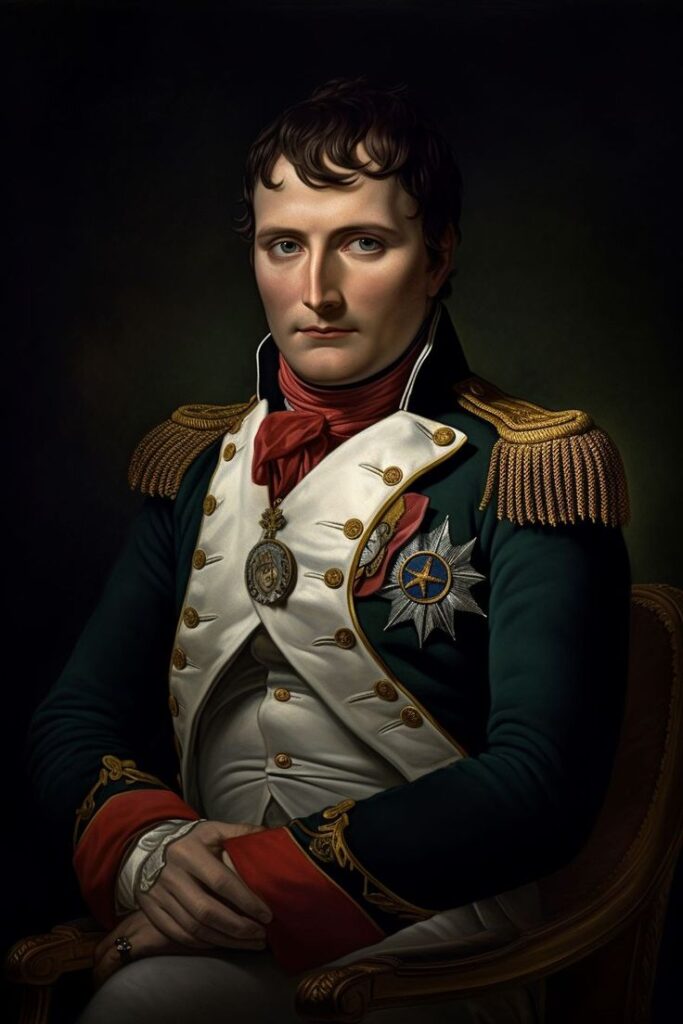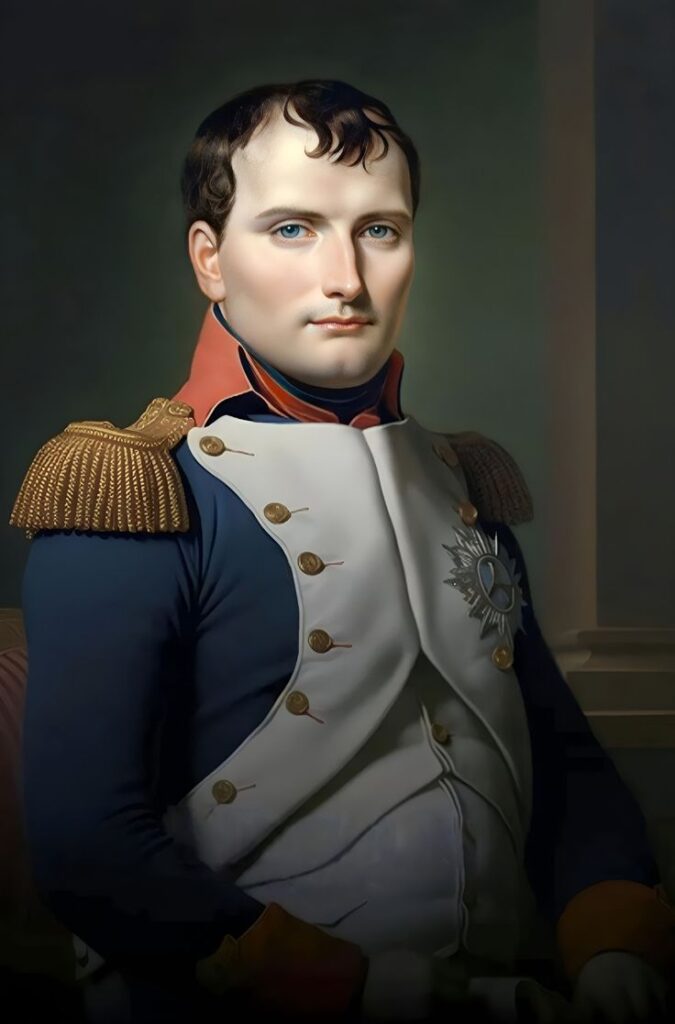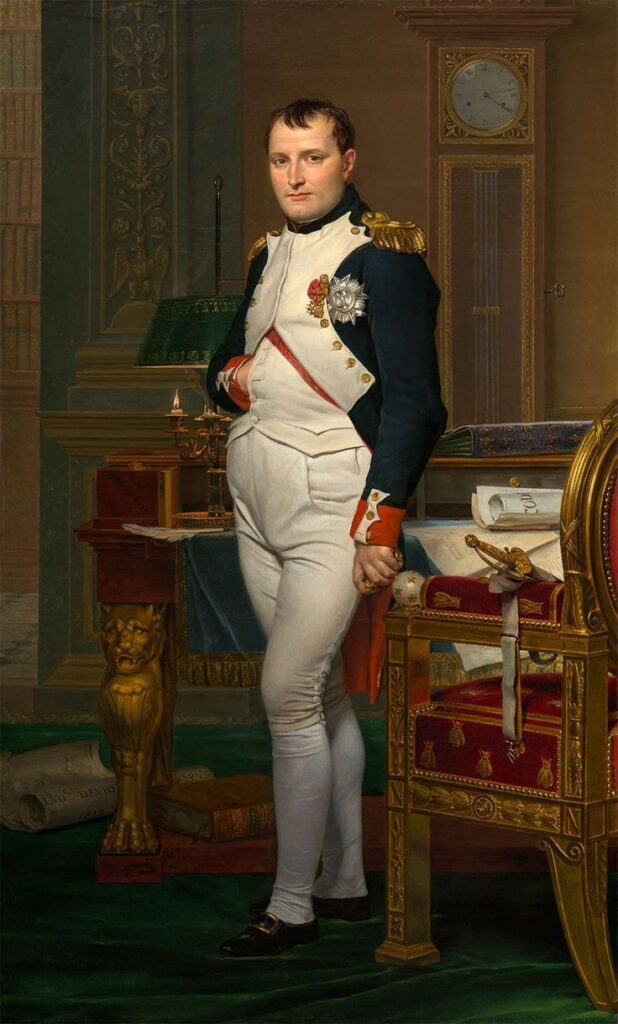
Napoleon Bonaparte:

In European history, Napoleon Bonaparte was a strong and significant leader. On August 15, 1769, he was born on the Mediterranean island of Corsica. Napoleon’s participation in the French Revolution and his ascent to the French throne are well remembered. History in Europe was altered by his life and work. This blog provides a basic overview of Napoleon’s ascent, accomplishments, and legacy.
Napoleon Bonaparte: Childhood
Napoleon came from a lowly background. His mother was sprung from an aristocratic family, while his father practiced law. Napoleon attended a French military academy at an early age. He was a hard worker and quite intelligent. He had established himself as a leader by the time he was a teenager.
Napoleon Bonaparte: Start of a Military Career
Napoleon was promoted to second lieutenant in the French army in 1785. His skill and determination allowed him to rise through the ranks fast. His participation in many fights during the French Revolution. Brought him notoriety. His first significant victory came at the Siege of Toulon in 1793. His triumph turned him into a national hero.
Napoleon Bonaparte: Ascent to Power
Napoleon’s French Revolution career took off. He participated in a coup d’état, or the unexpected overthrow of the government, in 1799. He was appointed France’s First Consul. Napoleon proclaimed himself emperor in 1804. He was a huge hit with the populace. They respected his vision for France and his leadership.
Reforms and Accomplishments

Napoleon made a number of significant changes while emperor. With the Napoleonic Code, he restructured the legal system in France. Laws become transparent and equitable for everybody with this code. He also constructed several roads and bridges, as well as enhancing the educational system. These modifications contributed to France’s modernisation and strength.
Napoleon also made an effort to disseminate French Revolutionary ideals across Europe. He advocated for liberty, equality, and brotherhood. Many nations, even those he did not directly control, were impacted by his policies.
Battles and Takeovers
Napoleon’s military exploits have made him renowned. He commanded France in the Napoleonic Wars, a series of significant conflicts. His soldiers increased French territory and prevailed in several conflicts. The Battle of Wagram in 1809 and the Battle of Austerlitz in 1805 are two of his most well-known triumphs.
But not every one of his efforts was a success. His 1812 invasion of Russia was a colossal disaster. Napoleon’s army suffered a crushing defeat as a result of the severe winter and fierce Russian opposition. This setback signalled the start of his decline.
Banishment and Reunion

Following many setbacks, Napoleon was compelled to resign, or cede, his crown, in 1814. He was sent to Elba, an island off the coast of Italy. But in 1815, he managed to flee Elba and made his way back to France for a little while known as the Hundred Days.
He was attempting to reclaim power at this period. In June 1815, he participated in the Battle of Waterloo against forces from Europe. Napoleon’s brief reign of dominance came to an end with his loss at Waterloo. Following that, he was banished to the isolated island of Saint Helena in the South Atlantic.
Last Year’s and Demise
Saint Helena was where Napoleon lived out his last years. The island was remote and distant from Europe. He wrote about his life and accomplishments while living in a state of relative seclusion. On May 5, 1821, Napoleon passed away at the age of 51. With his passing, an extraordinary and contentious period came to a close.
History
The legacy of Napoleon is nuanced. His military prowess and the reforms he instituted are what make him legendary. Around the globe, legal systems have been impacted by the Napoleonic Code. His attempts to disseminate revolutionary ideas across Europe had a lasting effect.
But Napoleon’s campaigns brought up a great deal of misery and devastation. Authoritarian control was another characteristic of his reign. Napoleon is nevertheless regarded as an important historical figure in spite of these disputes. His life narrative is one of bold transformation, ambition, and leadership.
Leave a Reply